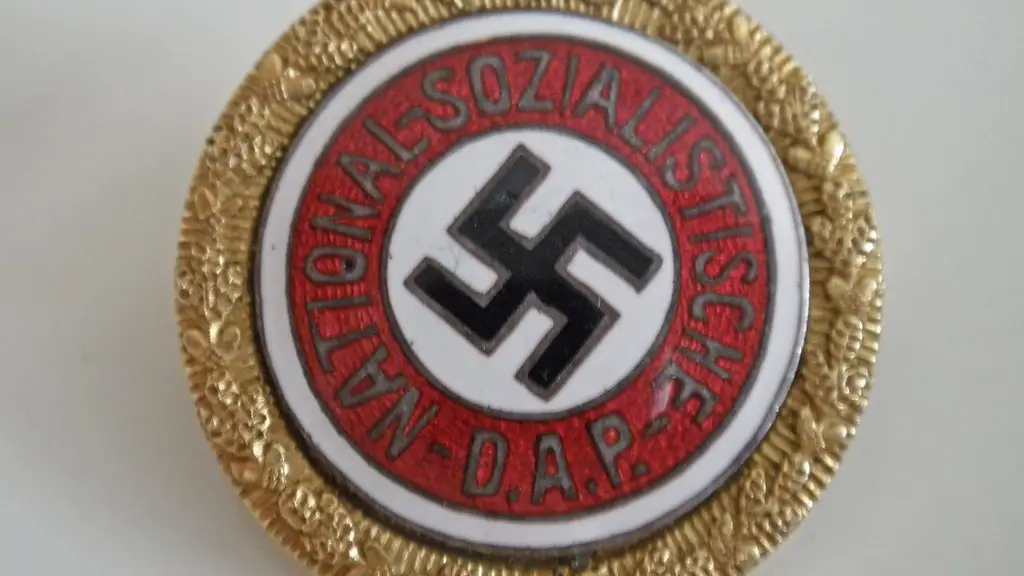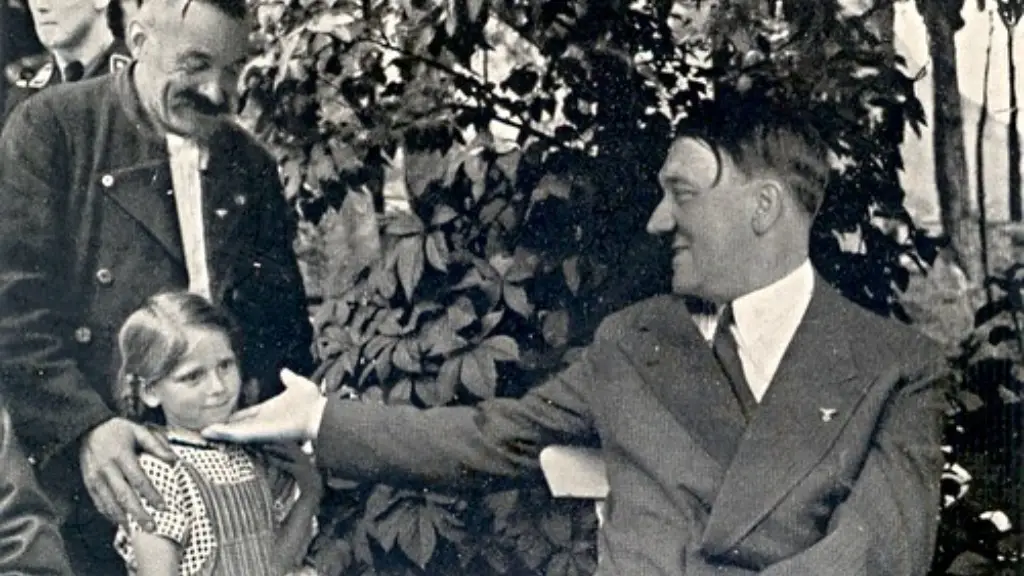What Was Adolf Hitler’s Attitude To Regret?
Adolf Hitler was one of the most notorious dictators in history and continues to evoke strong feelings and debate. He had a ruthless and uncompromising attitude, leading Germany into a dark period of destruction that resulted in the deaths of millions of innocent people. Yet, it is hard to find evidence to support whether Hitler expressed regret for any of his actions.
Adolf Hitler was an authoritarian and authoritarian leaders are known to not have regrets and to have an “I have done nothing wrong” mentality. Specifically, such leaders are known to defend their actions and values as if they were at all times correct. Also, they are very strategic when it comes to expressing their thoughts in public and keep a positive image.
Although Hitler may have appeared publicly to have a reinforcement attitude, his private thoughts and regret may have been different. From what we know, Hitler never showed his regret for his policies and even showed pride for them. According to historians, documents from his office indicated no evidence of regret and that any thoughts related to regret were hidden from public view.
Some have argued that Hitler’s personality might have caused him to feel some semblance of regret or compassion. Despite Hitler’s various speeches and writings throughout his time as a leader, there remains no definitive evidence as to whether he felt any sense of remorse for what he had done.
In some of his speeches, Hitler spoke about the “extremes” of his policies and was aware of their consequences. He might have been keenly aware of the consequences of his actions and the millions who were killed because of his actions, and while his actions did reflect some kind of recognition of their consequences, this might have not necessarily meant regret.
The lack of evidence of Hitler expressing regret makes it difficult to say anything conclusive when it comes to Hitler’s feelings of remorse. It is possible that despite his authoritarian attitude and “I have done nothing wrong” mentality that Hitler felt some kind of regret but kept it tightly guarded.
Was Adolf Hitler Remorseful In Any Way?
In the eyes of many people, Adolf Hitler was a monster, yet some researchers have argued that Hitler may have been remorseful in some way. This idea is based on his alleged reaction to the extermination of Jews.
In some cases, it is believed that Hitler showed some kind of sorrow for the suffering he caused, however, there is no clear way to prove this. Throughout his time as a leader, there is no evidence of him showing any kind of regret publicly and most of what we know of his opinion or feelings is from his speeches, which are mostly filled with strength and determination.
It has been argued that Hitler may have felt sorrow internally, however, be too scared to express it due to his authoritarian beliefs. It is believed that Hitler may not have wanted to deviate from the views of his followers, so regret could have been seen as a sign of weakness, therefore, he kept these feelings to himself.
It is worth noting that the Third Reich was known for its secretive nature and that many of Hitler’s feelings were usually kept private. During this time, there were also records of Hitler having absolute control of his actions and words, indicating that any of his emotions were kept tightly cordoned off.
Therefore, it is difficult to definitively say whether or not Hitler ever felt any form of remorse for his actions or regret for the death of millions by his orders.
What Was Hitler’s Attitude To Revenge?
Adolf Hitler was known for his ruthless and uncompromising attitude and revenge was a central part of his ideology. This is evidenced in Hitler’s now famous “Mein Kampf”, where he outlines his racial theories and shows a clear desire for vengeance.
Hitler was a firm believer in revenge as a justifiable act and this is evidenced by his radical and effective propaganda campaigns, which were designed to show a sense of vengefulness and continue to instil fear and anxiousness in the public.
Hitler was also known for his call to arms during the Second World War, which was seen as a campaign of retaliatory action against those perceived to be his enemies. This was also compounded by his alleged plan to subjugate and exploit citizens of other countries, giving his revenge campaign a greater reach.
It is clear that Adolf Hitler had a deep rooted urge for revenge, however, the same could not be said for regret. From a moral standpoint, these two emotions are very different and the distinction between them is not always clear.
Revenge and regret are often mistaken for each other, but it is important to differentiate between the two. While regret involves introspection and sorrow for past actions, revenge is more focused on the present and is often carried out from a place of anger and hatred.
Adolf Hitler’s attitude to revenge was clear, yet his attitude to regret remains a mystery.
Did Adolf Hitler Show Any Kind Of Remorse After His Defeat?
When Adolf Hitler was finally defeated in 1945, it marked the end of one of the darkest periods in history. After his defeat, some have argued that he showed some kind of remorse, due to the humiliation and desperation he must have felt at the time.
However, there is no clear way to know how Hitler reacted to his defeat. His suicide shortly after the fall of the Third Reich has made it impossible to definitively gauge what his state of mind was at the time. Some have argued that he may have finally realized the full extent of the death and destruction his policies had caused and felt some kind of regret.
It is likely that even if Hitler did feel some kind of regret, he would have kept it tightly guarded like most of his feelings and emotions during his time as a leader. It is impossible to know for sure, as such feelings were usually kept highly confidential during the Third Reich.
Therefore, while some have argued that Hitler may have felt some kind of regret after his defeat, there is no concrete evidence to support this.
Explanation of Hitler’s Refusal To Apologize?
When Adolf Hitler was asked by the International Military Tribunal to apologize for his actions, he flatly refused. This refusal has been a source of debate ever since, with some arguing that it was an expression of arrogance, while others have argued that he may have just been too proud to apologize for his own wrongdoing.
One argument suggests that Hitler had become so convinced of his own infallibility by the time of his trial that he simply couldn’t bring himself to accept that he could be wrong. This could have been because he was so devoted to his ideology of racial superiority and was used to having total control and following.
Furthermore, Hitler was known for his intense self-pride and could have seen an apology as an admission of weakness, which he simply could not bring himself to do. He was not one to admit his mistakes and could not bring himself to go against the principles he held so dear.
Another argument suggests that Hitler simply could not believe that his actions had caused so much damage and suffering. To him, his actions were justified and part of his vision for a better Germany and a strong sense of self-assurance had allowed him to ignore the evidence of his crimes.
Therefore, due to his pride and unwavering belief in his own infallibility, Hitler refused to apologize for his actions, even upon his defeat.
What Can We Learn From Hitler’s Attitude To Regret?
The refusal of Adolf Hitler to express regret for his actions, even in the face of defeat, remains an example of deep-rooted pride and a refusal to accept it when things don’t go as planned.
It is a timely reminder for leaders that humility and acceptance of mistakes are important to create a successful organisation. Additionally, we can learn that any kind of authoritarian style of leadership only creates obstacles to progress, as it restricts freedom and open discussion.
Moreover, we can also learn that a refusal to accept mistakes can lead to damaging consequences. The refusal of Hitler to accept responsibility for his actions led to one of the darkest periods in human history, and the refusal of leaders in the present day to accept their wrongdoings could lead to similar consequences.
Finally, we can learn from Hitler’s attitude to regret that it is important to make sure mistakes are not repeated and that we take responsibility for our own actions. We can learn from Hitler that a lack of holding ourselves accountable for our own mistakes could lead to a destructive and dangerous path.

